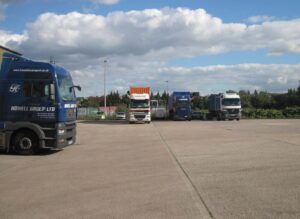Serco fined £2.25m after death of custody officer
Security firm, Serco, has been fined £2.25 million for health and safety failings following the death of custody officer Lorraine Barwell.

Ms Barwell, a 54-year-old grandmother was kicked twice, once in the body and once in the head, at Blackfriars Crown Court in 2015 during the restraint of a prisoner in custody. She died from brain injuries caused by the second blow.
Ms Barwell had worked for Hampshire-based security firm Serco for 10 years when the attack took place.
The incident led to an investigation by the Health and Safety Executive (HSE) that found that Serco Limited had failed to properly analyse risk intelligence on prisoners and communicate risks and safety precautions to staff. There was also a failure to have sufficient procedures in place and follow them, to provide readily accessible protective equipment and to ensure further training was provided where identified as required.
In addition, there was a continued failure to adequately staff court activities, manage working hours, assess risks of violence and aggression, communicate safety critical information, have suitable procedures in place and to work in accordance with those procedures covering a period of over three years. Time pressures, staffing levels and business priorities had led to routine violations of procedures by staff in order to get the job done which had gone unchallenged. This is despite such failings being brought to their attentions by HM Prisons Inspectorate, Ministry of Justice, HSE Inspectors and Serco’s own staff.
In a separate incident in 2016, another member of staff was rammed against a wall and strangled in the Woolwich Court annex which could have had very serious consequences. The alarm button was pressed, but there were no staff manning the annex to respond and so it took time to call and gain assistance from the main building. There should have been 32 of Serco Limited’s officers at court that day, but there were only 22.
On 25 April 2022 at Southwark Crown Court, Serco Ltd, of Serco House, Bartley Wood Business Park, Hook, Hampshire pleaded guilty to charges under section 2(1) of the Health and Safety at Work etc. Act 1974 contrary to Section 33(1) (a) of the Health and Safety at Work etc. Act 1974. On 26 May 2023 at the Central Criminal Court (Old Bailey) they were fined £2.25m and ordered to pay £433,596.07 in costs.
In a victim impact statement, Lorraine’s daughter Louise Grennan, said: “Our mum was a wonderful loving supportive mother to myself, my brother and her two granddaughters whom she adored and loved, and they adored her.
“She too was a friend to many and loved by many. To lose her has left a huge void in everyone’s hearts.
“Mum was my best friend and she helped me care for my daughter. We spoke about plans to move abroad to live in the sun once mum had retired from work. That has all gone now.”
Speaking after the hearing, HSE inspector Helen Donnelly said: “Serco drastically failed in their duties to protect both Lorraine Barwell and other staff over a sustained period. It is not common to have a case covering such an extended period, but it appeared that Serco Limited were not learning from their mistakes.
“Lorraine Barwell and her colleagues were just doing their job and should have been protected from harm. Had Serco carried out their legal duties, these incidents could have been prevented.
“While this investigation has been long and complex, we hope Lorraine’s friends and family will find some comfort in today’s sentence and see that justice has now been served.
“No matter what work environment you are in, health and safety regulation is designed to protect people at work. We will not hesitate to act against those who fail to protect their workers.”
Notes to Editors:
- The Health and Safety Executive (HSE) is Britain’s national regulator for workplace health and safety. We prevent work-related death, injury and ill health through regulatory actions that range from influencing behaviours across whole industry sectors through to targeted interventions on individual businesses. These activities are supported by globally recognised scientific expertise.
- More information about the legislation referred to in this case is available.
- Further details on the latest HSE news releases is available.

